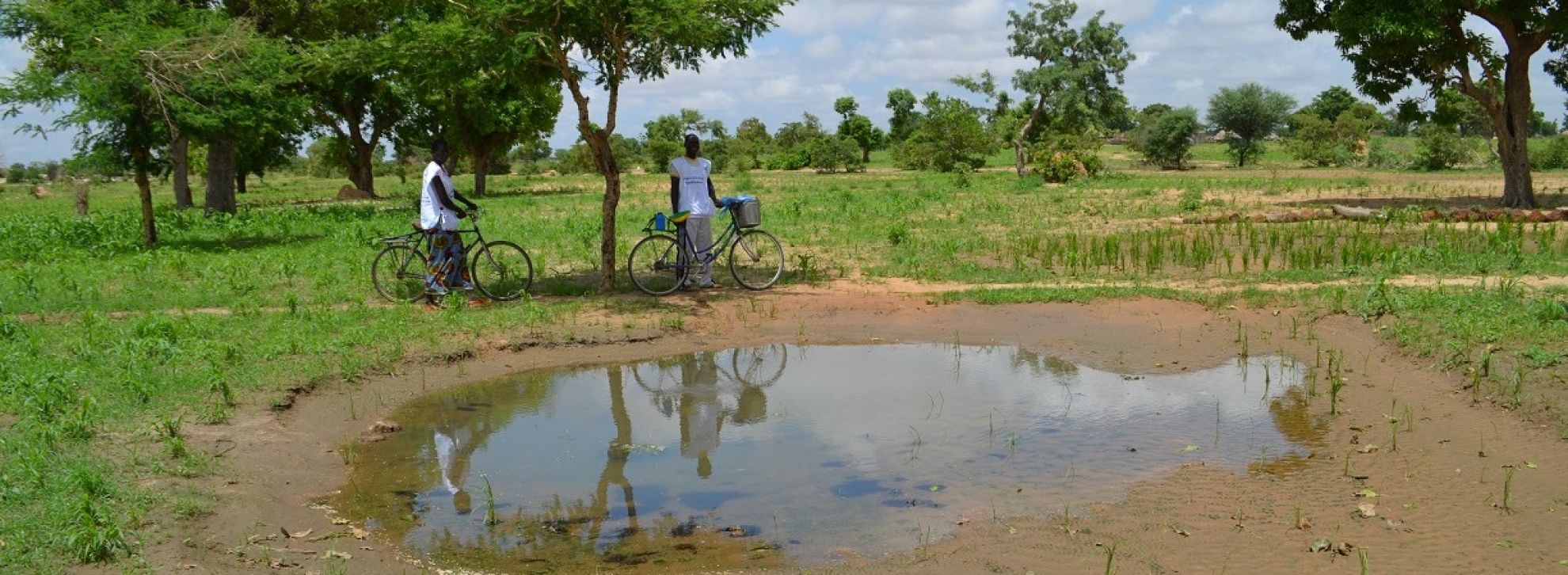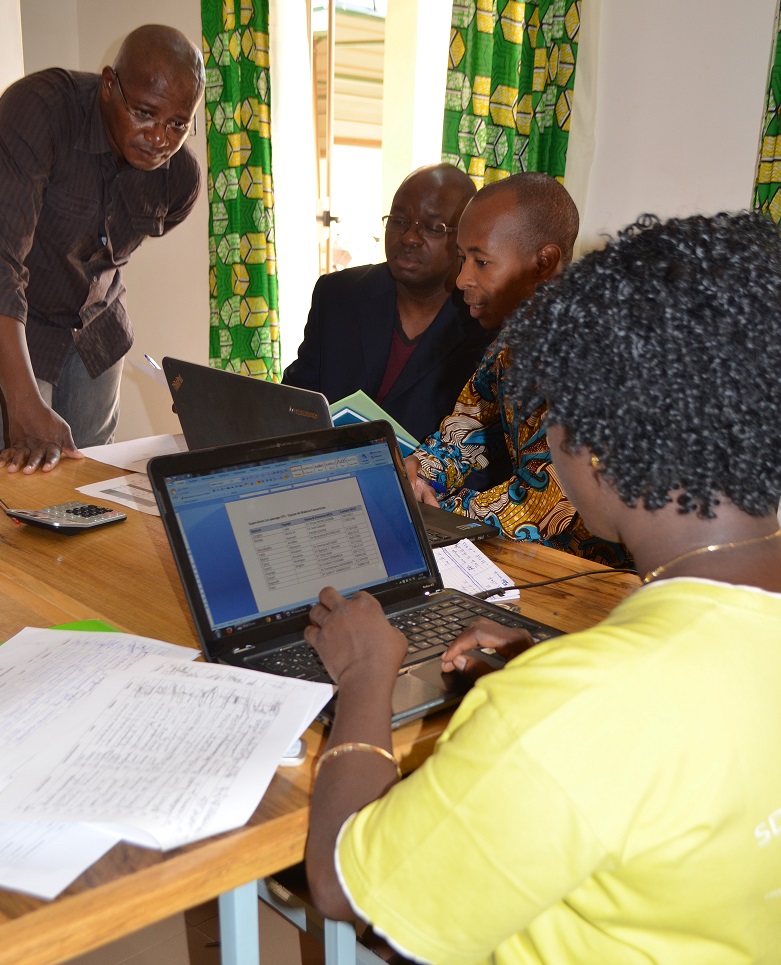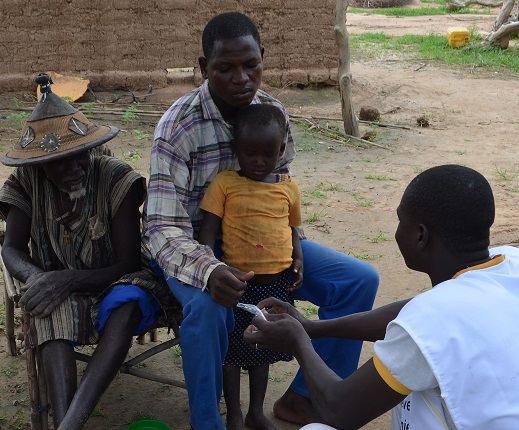
Seasonal Malaria Chemoprevention for the Sahel
25 August 2015
In the continued fight against malaria, there is increased recognition of the need to tailor interventions to suit local conditions and specific contexts. For the 25 million children aged 3-59 months who live in areas across the Sahel, the World Health Organization recommends seasonal malaria chemoprevention (SMC) as an effective tool to prevent malaria. This year Malaria Consortium, in partnership with Catholic Relief Services, is working with seven National Malaria Control Programs (NMCP’s) to bring SMC to the Sahel. As the first cycle of SMC distributions draws to an end, we take a look back over the last year, highlighting some of the key milestones of the UNITAID-funded ACCESS-SMC project to date.
From Dakar to Distributions …
 Since the official launch of ACCESS-SMC in 2014, participating countries (Burkina Faso, Chad, Guinea, Mali, Niger, Nigeria, The Gambia) have come a long way, navigating many micro-planning sessions, learning from past experiences and building sustainable systems to ensure a future for SMC in the Sahel.
Since the official launch of ACCESS-SMC in 2014, participating countries (Burkina Faso, Chad, Guinea, Mali, Niger, Nigeria, The Gambia) have come a long way, navigating many micro-planning sessions, learning from past experiences and building sustainable systems to ensure a future for SMC in the Sahel.
In March 2015, Malaria Consortium and Catholic Relief Services gathered country teams from the seven supported countries, along with representatives from the NMCP’s, to attend a two-day workshop in Dakar, Senegal to develop country specific work plans in preparation for the implementation of ACCESS-SMC.
Over the course of the two days, participants focused on developing plans relative to:
Procurement and Supply Chain
Advocacy, BCC and Community Mobilisation
Service Delivery and Drug Administration
Training and Supervision
Monitoring, Evaluation and Pharmacovigilance
1.8M treatments successfully distributed…
 As a result of rigorous planning and concerted collaboration, commitment and motivation of country teams, the first round of SMC distributions was completed in July in four of the seven ACCESS-SMC countries, bringing approximately 1.8M treatments to children in Burkina Faso, Chad, Guinea and Nigeria. While figures are still provisional and require further analysis, initial data received from the field suggests that coverage rates were high, ranging from 85% to 99% in the countries concerned.
As a result of rigorous planning and concerted collaboration, commitment and motivation of country teams, the first round of SMC distributions was completed in July in four of the seven ACCESS-SMC countries, bringing approximately 1.8M treatments to children in Burkina Faso, Chad, Guinea and Nigeria. While figures are still provisional and require further analysis, initial data received from the field suggests that coverage rates were high, ranging from 85% to 99% in the countries concerned.
The majority of distributions were rolled out in areas where SMC had not previously been delivered, working with newly trained health workers, often in difficult conditions. Numerous challenges were met owing to the diverse complexities of implementing an SMC campaign in rural areas during the rainy season. These challenges have provided us with many lessons which will strengthen our approach as we continue working to deliver this campaign and protect more children across the Sahel.
As the first cycle of SMC distributions draws to a close, Diego Moroso, ACCESS-SMC Project Director says, “This is just the start, and a very encouraging one it is. In spite of the difficulties encountered and the novelty of implementing this campaign at such a scale, dedicated country teams achieved excellent results." He continues to explain his hopes for the 2016 implementation of the SMC campaign, stating that, "With improved planning and, hopefully increased availability of prequalified drugs in 2016, we aim to double the number of target beneficiaries during the SMC season, while also improving coverage."

"The key goal of the project is to catalyze support for SMC, allowing it to become a sustainable and effective option for malaria control in the Sahel. We hope that our work, through the UNITAID-funded ACCESS-SMC project, will leverage further support for countries to expand the scale of their SMC interventions, and hopefully also expand to countries that could not implement a campaign this year due to the global drug shortage,” concluded Mr. Moroso.
Latest news
- International summit calls for AMR accountability in public health interventions21st March 2024
- Global SMC community celebrates new milestone at SMC Alliance Annual Meeting in Nigeria6th March 2024
- Scaling up key interventions could halve pneumonia-related childhood mortality13th February 2024
- Malaria Consortium and eGov Foundation join Mozambique’s national malaria programme to digitalise seasonal malaria chemoprevention campaigns8th February 2024
- World’s first malaria vaccine rollout launched in Cameroon22nd January 2024
- Digital solutions driving equitable access to health6th December 2023